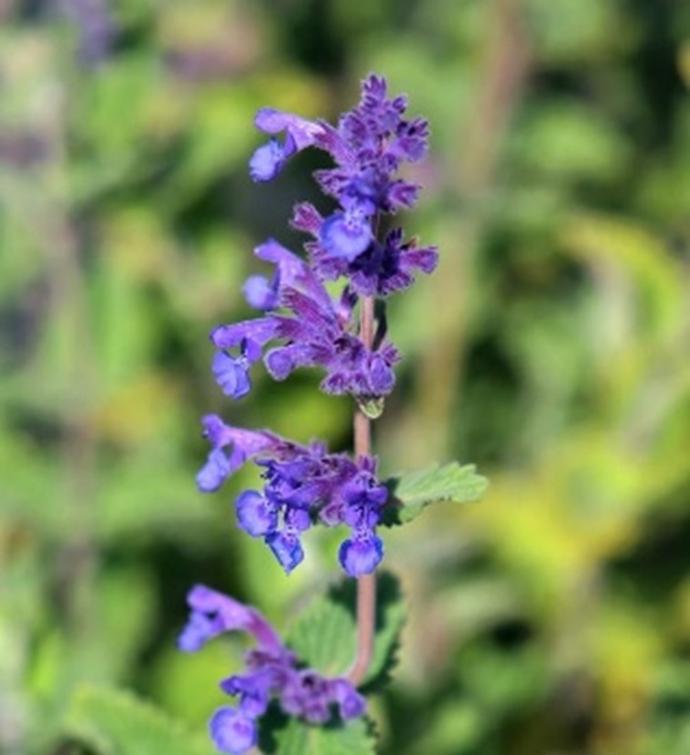Catmint Plant
Catmint (Nepeta cataria) is a perennial that grows 2-3 ft tall, hardy in USDA Zones 3-9, prefers well-drained, sandy soil, full sun to part shade, medium moisture, is edible, and has medicinal uses.

Habit
Spreading
Height
30-90 cm
Growth
Perennial
Soil
Perennial
Shade
Full Sun
Moisture
Moderate
Edible
No
Medicinal
Yes
Origin
Europe, Asia
Climatic Condition
Temperate, Mediterranean
Temperature (°)
10 to 25°C
Humidity (%)
40-70%
Potting media
Peat, perlite, compost
Fertilizers
Balanced fertilizer
Watering
Moderate, avoid waterlogging
Plant Weight
100-500 grams
Flowering Time
Spring to early summer
Soil Ph level
6.0 - 7.5
Water Ph level
6.0 - 7.5
Soil EC
1-2 dS/m
Yield Per Plant
Ornamental, medicinal use
NPK ratio
04:03:04
life Span
Perennial
Health Benefits
Used in herbal medicine, relieves stress, good for digestion
Suggested Grow Media or Potting Mix ?
40% loamy soil, 30% compost, 30% perlite
Suggested Fertigation/Fertilizers
Fertilize every 4 weeks with a balanced, water-soluble fertilizer.
Common Diseases and Remedies
Powdery Mildew, Rust, Leaf Spot, Root Rot, Botrytis Blight
White powdery growth on leaves, Orange or brown pustules on leaves, Brown or black spots on leaves Wilting, yellowing leaves, root discoloration Gray mould on flowers and leaves
Neem oil, baking soda spray Apply sulfur, remove infected debris Remove infected leaves, use compost tea spray Improve soil drainage, use beneficial soil microbes Improve air circulation, prune affected areas
Sulfur-based fungicides, Fungicides with myclobutanil, Copper-based fungicides, Fungicides with metalaxyl or mefenoxam, Iprodione or thiophanate-methyl.
HEALTH BENEFITS
· Boosts Immunity: Contains alkaloids that enhance immune function.
· Joint Health: Used to treat arthritis due to its anti-inflammatory properties.
· Antiviral: May help fight viral infections like herpes and colds.

